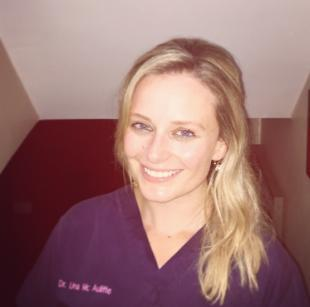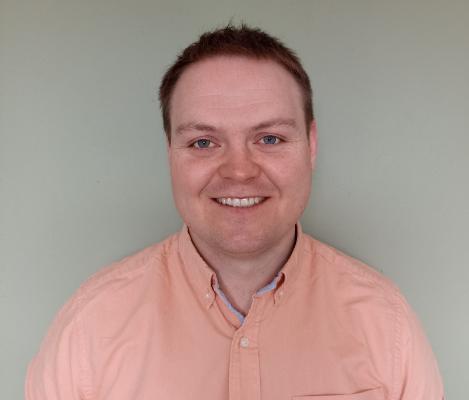| Code | MDPH |
|---|---|
| Duration | 1 Year Full-time |
| Teaching Mode | Full-time |
| Qualifications | MDPH |
| NFQ Level | Level 9 |
| Start Date | Not on offer 2026/ 2027 |
Course Outline
The aim of our Dental Public Health postgraduate programme is to provide you with the knowledge and skills necessary to lead and support the development of dental public health nationally and internationally.
Highly-trained public health specialists are required in Ireland and abroad to tackle issues such as health inequalities; their causes and solutions; communicable diseases; oral health; obesity; smoking and international health development. In particular, Dental public health is the science of preventing oral diseases, promoting oral health and improving the quality of life through organised efforts. It concerns not only actions directed at populations as a whole, but also at the groups and individuals that make up populations.
The Master of Dental Public Health (MDPH) is an innovative course designed to offer multi-disciplinary academic and experiential development. Our teaching model places emphasis on the following methods of learning:
- student-directed learning
- multi-disciplinary teaching and learning
- problem-solving
- skills training
- flexibility
Our Dental Public Health programme will appeal to dental professionals who wish to develop the knowledge, skills, and commitment to developing services that are equitable and fair; and who wish to develop a greater understanding of the competing demands, resource implications, and expectations in providing a public dental service in the twenty-first century.
The programme comprises 90 credits as follows:
Part I (60 credits)
- EH6051 Principles and Practice of Public Health (10 credits)
- EH6052 Applied Research for Public Health (10 credits)
- EH6053 Public Health Informatics (5 credits)
- EH6054 Leadership in Public Health (5 credits)
- PA6001 Decision Analysis and Evaluation Methods in Health Care and Health Care Financing (5 credits)
- SS6028 Public Health and Critical Social Science (5 credits)
- OH6001 Dental Public Health (10 credits)
- OH6002 Preventive Dentistry (10 credits)
Part II (30 credits)
- OH6003 Dissertation in Dental Public Health (30 credits)
Programme Learning Outcomes for Master of Dental Public Health (NFQ Level 9, Major Award)
On successful completion of this programme, you should be able to:
- Analyse critically and debate the theories and issues related to dental public health and effectively communicate their perspective to peer groups;
- Construct arguments around the social, political and economic factors determining the health of populations;
- Demonstrate competence in the key disciplines and theories underpinning public health including health informatics, epidemiology including needs and demands assessment, communicable diseases including healthcare-associated infections, biostatistics, social and behavioural sciences and social policy;
- Design and discuss the provision, economic evaluation, management and leadership of health services;
- Analyse and synthesise evidence-based research and its application to the practice of dental public health;
- Develop and evaluate appropriate oral health protection and promotion initiatives at the population level;
- Develop and apply research methodology by conducting a specified programme of research under appropriate supervision.
Academic Programme Catalogue
See the Academic Programme Catalogue where you can search for the complete and up-to-date content for this course. Note that the modules for all courses are subject to change from year to year. For complete descriptions of individual modules, see the Book of Modules.
Course Practicalities
The course is a taught master’s, modular in format with assessment through written examination, project work, essay, and completion of a minor dissertation. Our progreamme draws on experience from across the university with teaching being provided by the College of Medicine and Health, Centre for Policy Studies, and Applied Social Studies. International speakers are also invited to provide seminars on the course, enhancing the experience of the student and exposing you to different approaches.
Lectures are scheduled for Wednesday and Thursday afternoons and all day Friday (subject to change). Extensive reading is required and we provide reading lists with each module.
Please note that this programme is non-clinical. Please see the website of the Dental Council for information about requirements to register and practice as a dentist in Ireland.
Why Choose This Course
Dental public health is recognised as an important component of the modern dentist’s skill set. As populations live longer, the focus must be on adding ‘life to years rather than years to life’. Oral healthcare must be planned and delivered to optimise scarce resources. This successful outcome is fostered throughout the MDPH, exposing the student to research methods, fostering evidence-based practice, healthcare evaluation, and encouraging leadership, through structured modules.
Cork Dental School and Hospital
Founded in 1913 the Cork Dental School and Hospital is committed to excellence in education, patient care, research, and community service. Our graduating dentists, hygienists, and dental nurses embody this excellence and continue to develop these strengths throughout their careers.
Professor Mairead Harding, Professor of Dental Public Health & Preventive Dentistry at UCC, is shown here with recent graduates from our DPH programme.
Skills and Careers Information
Continuing Professional Development (CPD)
As part of UCC's commitment to Continuing Professional Development (CPD), healthcare professionals may take a one-off module and be provided with a relevant transcript of marks.
Requirements
- Applicants must hold a BDS (Hons) Degree of the NUI or equivalent degree.
- Applicants must include a sample of their own written work with their application.
- Applicants must satisfy an interview board.
All applicants should indicate on their application form their reasons for wishing to enter this programme and will be required to discuss these at the interview.
Note: In exceptional circumstances, applicants with a primary degree in another discipline may be recommended for entry to the programme under Recognition of Prior Learning (RPL) following a review of their individual qualifications and experience by the course committee. Admission of such applicants may be subject to the approval of the College of Medicine and Health Executive Committee.
Additional Requirements (All Applicants)
You will be required to provide additional information as part of the online application process. This will include the following questions:
- You may enter the details of professional or voluntary positions held. We strongly encourage you to complete this section with all relevant work experiences that will support your application.
- In addition to your previously declared qualifications, please outline any additional academic courses, self-learning and professional training relevant to this programme.
- Please describe your motivation and readiness for this programme.
- Please upload a short analytical/critical/report writing sample or essay (1,000 words approx.)
For Applicants with Qualifications Completed Outside of Ireland
Applicants must meet the required entry academic grade, equivalent to Irish requirements. For more information see our Qualification Comparison page.
International/Non-EU Applicants
For full details of the non-EU application procedure visit our how to apply pages for international students.
- In UCC, we use the term programme and course interchangeably to describe what a person has registered to study in UCC and its constituent colleges, schools, and departments.
- Note that not all courses are open to international/non-EU applicants, please check the fact file above. For more information contact the International Office.
English Language Requirements
Applicants who are non-native speakers of the English language must meet the university-approved English language requirements. Visit our PG English Language Requirements page for more information.
Fees and Costs
Postgraduate EU and International Fees 2026/2027
See our Postgraduate EU and Non-EU (International) Fee Schedule for the latest information.
Deposits
If your course requires a deposit, please note that booking fees and deposits are non-refundable in all cases.
How can I pay?
See different options on our How Do I Pay My Fees? page.
Any questions? See the 'Contact Us' section on the Fees Office page.
How To Apply
1. Check dates
Check the opening and closing dates for the application process in the yellow fact file boxes at the top of this webpage. The UCC online application portal usually opens around mid October.
2. Gather documents
Scanned copies of supporting documents have to be uploaded to the UCC online application portal and include:
- Original qualification documents listed on your application, including transcripts of results from institutions other than UCC.
- Any supplementary items requested for your course, if required.
3. Apply online
Apply online by clicking the red 'Apply Now' button below. Note most of our courses have a non-refundable €50 application fee.



-300x400.JPG)